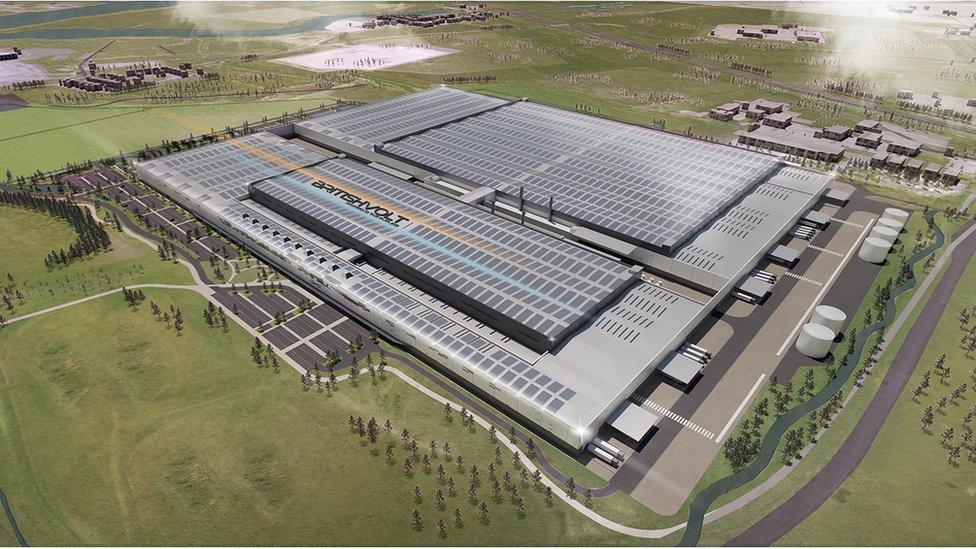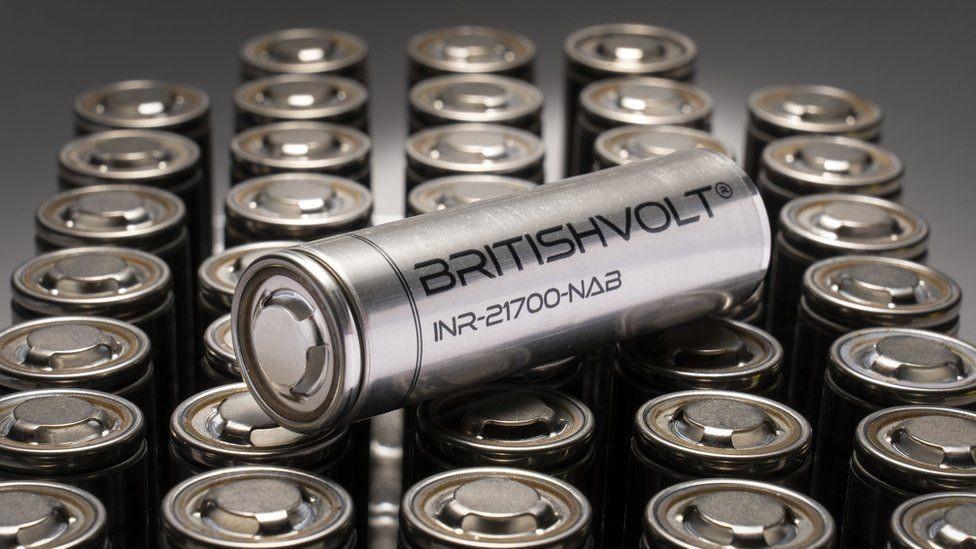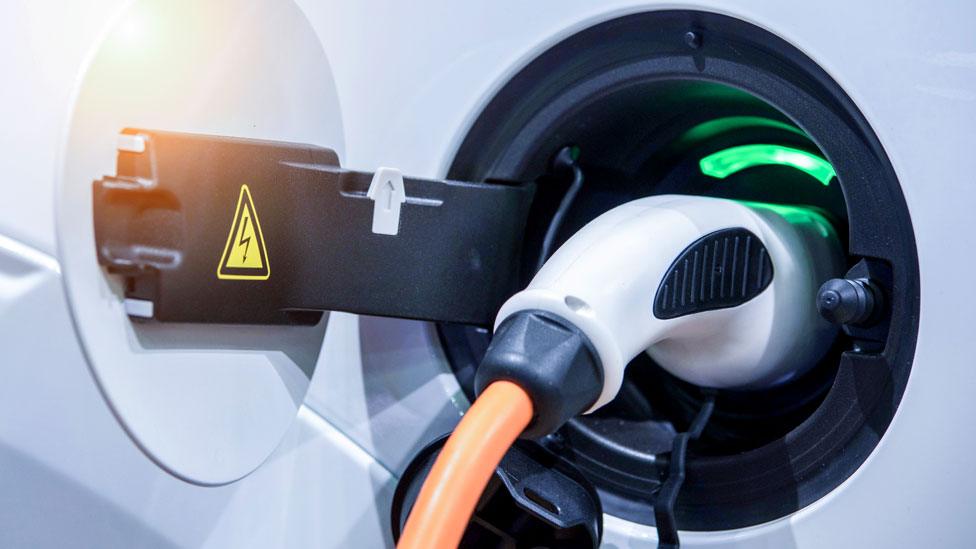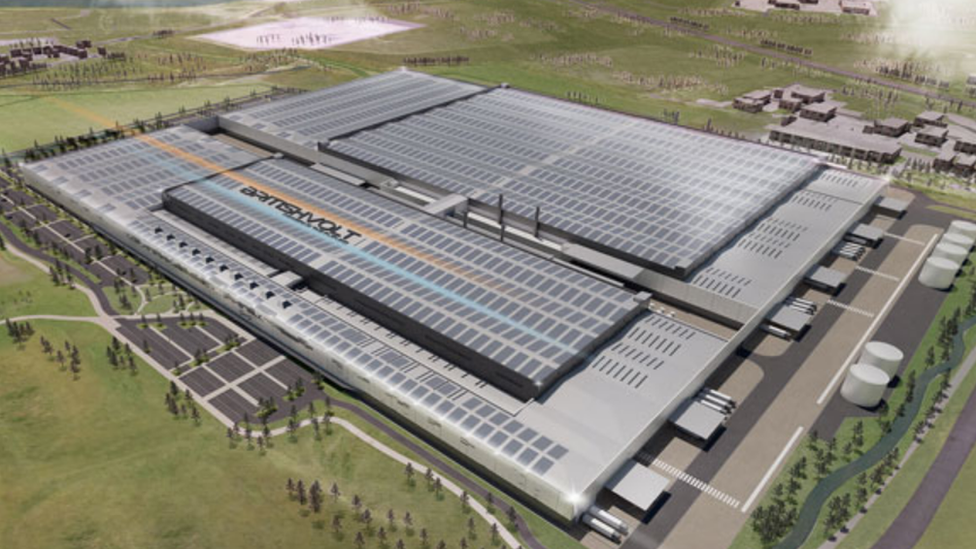Britishvolt: Electric car battery plant's funding confirmed
- Published

Artist impression of the Britishvolt factory, being built in Northumberland
A firm planning mass production of electric car batteries in the UK has had government funding approved for its proposed factory - six months after the plan was first backed.
Britishvolt will build the plant in Northumberland, creating 3,000 jobs.
The BBC understands Whitehall has committed about £100m through the Automotive Transformation Fund.
It comes weeks after Boris Johnson was quizzed by MP Ian Lavery about why the project had not yet received any cash.
Asked at Prime Minister's Questions on 6 July, Mr Johnson hit back and said an "in-principle offer of support" letter had been sent, external the previous night.
Britishvolt has announced it had received confirmation from the government that the funding is ready.
The £3.8bn plant - which is being built in Cambois on the site of the former Blyth Power Station - will also receive backing from investors Tritax and Abrdn, which should unlock about £1.7bn in private money.
Business secretary Kwasi Kwarteng also confirmed Britishvolt had been provided with a final grant offer.

The plant will produce lithium-ion battery packs for the UK automotive industry
Isobel Sheldon, chief strategy officer for Britishvolt, said the funding was "important in proving that the UK government is confident we will deliver on our plans".
She said the investment would directly create more than 3,000 jobs as well as play a key role in helping the UK reach its net zero target by 2050.
At full production, enough battery cells will be produced for more than 300,000 electric vehicle battery packs per year, Britishvolt said.
Executive chairman Peter Rolton previously said he would like all of the new jobs at the plant to go to people living in the area and the company was setting up a training centre in nearby Ashington.
The first batteries ready for use would roll off the production line in 2024, he added.

Follow BBC North East & Cumbria on Twitter, external, Facebook, external and Instagram, external. Send your story ideas to northeastandcumbria@bbc.co.uk, external.
Related topics
- Published21 January 2022

- Published6 January 2022

- Published6 July 2021
